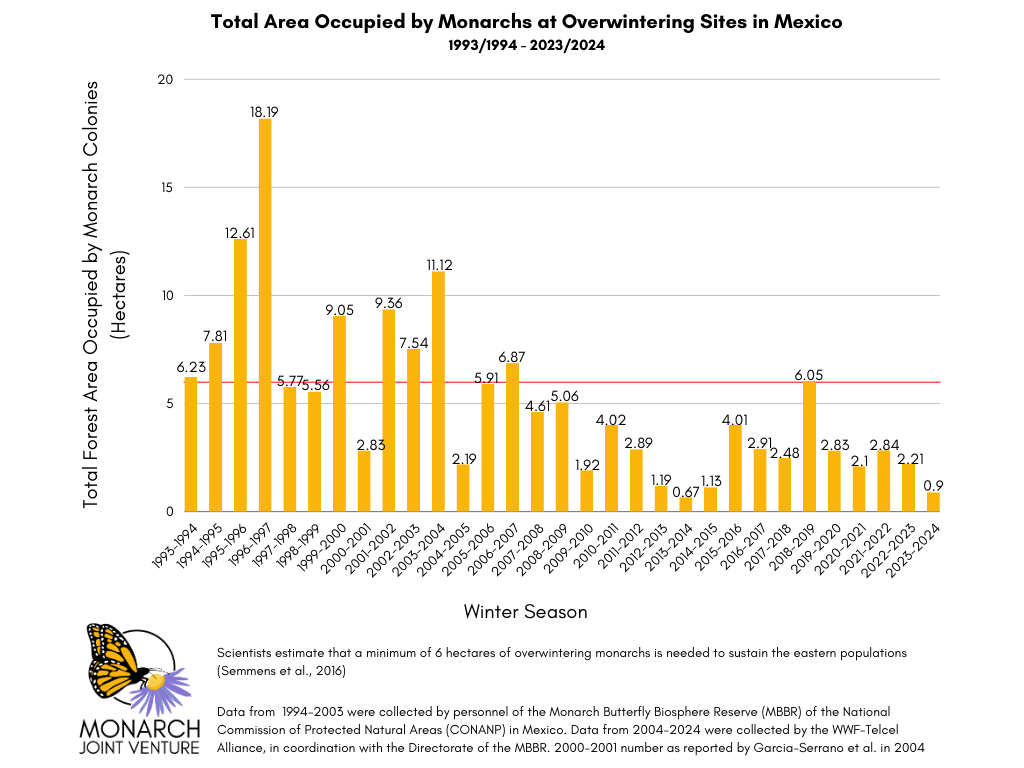Recent data from the annual survey conducted by the World Wildlife Fund (WWF) and its partners on the overwintering numbers of the eastern monarch butterfly population in central Mexico’s forests paint a concerning picture. The latest figures reveal a significant population decline, with only .9 hectares (equivalent to 2.2 acres) occupied during the 2023-2024 winter season, representing a staggering 59% decrease from the previous year. Because it is impossible to count each butterfly, the survey measures the area of forest the monarchs occupy each winter in the hibernation colonies, providing an indicator of their population status. It is estimated that six hectares of hibernating monarchs are required to maintain a sustainable eastern monarch population, more than six times the population announced this month.

Jorge Rickards, the general director of WWF Mexico, emphasized in a statement the urgent need for strengthened conservation and protection efforts. Preserving monarch habitats, both within and outside designated reserves, is essential for their survival. The data highlights the significance of initiatives aimed at restoring milkweed habitats and promoting sustainable land management practices. According to WWF, this year’s data represents the second-smallest area occupied by monarch butterfly colonies in Mexico since 1993, when population monitoring began, only preceded by the 1.7 acres observed in 2013-2014. The largest recorded population was in 1996-1997, with 45 acres monitored.
The shift in the location of the largest monarch colonies is another noteworthy aspect. While traditionally concentrated within the Monarch Butterfly Biosphere Reserve, this season’s largest colonies were detected outside the reserve boundaries. This trend underscores the importance of extending conservation efforts beyond protected areas to safeguard monarch habitats across their entire migratory route.
Prioritizing conservation efforts like promoting habitat restoration and implementing sustainable practices are critical to the survival of this iconic species and protecting the ecosystems they inhabit. As the work of Farmers for Monarchs has shown, the agricultural community has a great opportunity to be a part of the solution in preserving and supporting monarch populations. Please visit the Farmers for Monarchs State Resources page or call our Pollinator Habitat Help Desk at (337) 422-4828 or (337) HABITAT to get the information you need to establish habitat on your land.
